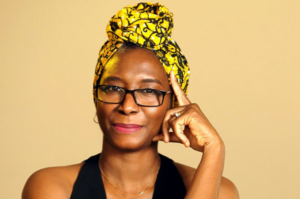
Zimbabwean authors Tsitsi Mapepa and Siphiwe Gloria Ndlovu just released or are set to release their novels this year through Catalyst press. Mapepa is set to publish her debut novel Ndima Ndima on November 7, while Ndlovu just released The Quality of Mercy, the third and final book in her City of Kings trilogy, on Septermb 26. In this conversation, Lizzy Attree chats with Mapepa and Ndlovu on the inspirations behind their novels and their connections to the national story of Zimbabwe.
Tsitsi Mapepa is a Kiwi, Zimbabwean-born writer who lets her creative side stream out in poetry, short stories, and novels. She studied at Manukau Institute of Technology, where she won an award of excellence in 2016 and the Kairangatira award in the BCA in 2018, before completing her Master’s in Creative Writing degree at the University of Auckland in 2020. She resides in Auckland, New Zealand with her husband and three children.
Mapepa’s debut novel Ndima Ndima is the saga of the four Taha sisters, and the indomitable matriarch who carried her daughters—and her community—through times of drought and violence in their Harare neighborhood.
Siphiwe Gloria Ndlovu is a writer, filmmaker and academic who holds a PhD in Modern Thought and Literature from Stanford University, as well as master’s degrees in African Studies and Film. She has published research on Saartjie Baartman and she wrote, directed and edited the award-winning short film Graffiti. Born in Bulawayo, Zimbabwe, she worked as a teacher in Johannesburg before returning to Bulawayo. Her first novel, The Theory of Flight won the Barry Ronge Fiction Prize in South Africa. In 2022, Siphiwe was awarded a Windham-Campbell Prize for Fiction.
The City of Kings trilogy is based in an unnamed Southern African nation. In The Quality of Mercy, Spokes Moloi, the first black chief inspector in the City of Kings, investigates the possible murder of Emil Coetzee, the notorious head of the Organization of Domestic Affairs. In examining Emil’s disappearance, Spokes has one last opportunity to solve the decades-old murder case that determined both the path of his life and destiny of his country.
***
Lizzy Attree
Having read Ndlovu’s City of Kings trilogy and Mapepa’s debut novel Ndima Ndima, I can’t help asking you both what drew you to these stories, to storytelling in general? Why were you compelled to tell these stories?
Tsitsi Mapepa
It’s really difficult to explain why I’m drawn to storytelling. It could be because I’m not much of a speaker, and I find writing the best way to communicate with others. But when you are gifted with such a talent or any talent, it is vital to embrace it. For me, I started writing when I was a teenager. I wrote poems in my notebooks and loose papers. I attempted writing a novel which I never finished. (My main character’s name would’ve been Monique. Ha ha!).
I suppose I was one of those girls who observed things from afar and stored events in my mind without knowing they would become useful in future. I’m aware when I say events, people often rush to conclude that they are mainly bad things. No. Disturbing scenes in my novel are all my creation, but that doesn’t mean these things aren’t happening worldwide. I’m only obliged to write stories like Ndima Ndima because I’ve always questioned a lot of things in my life.
Siphiwe Gloria Ndlovu
It is very easy for me to respond to this because my answer to both questions is the same: my grandmother. My grandmother was not only a phenomenal oral storyteller, she was also a school teacher and started giving me books to read long before I started going to school. I always had an active imagination, but my grandmother is the one who gave me the gift of story. A consummate performer, she knew exactly what to do to tell a compelling and engaging story. One such story she told me involved a policeman who falls in love with a woman and follows her all the way to her ancestral village where he is immediately given a test in order to win her hand in marriage. That story my grandmother told me became the genesis of The Quality of Mercy.
Lizzy Attree
I see Valerie Tagwira in the day-to-day elements of Mapepa’s writing, as well as a matrilineal connection to spirituality and tradition – are these Grandmother’s tales? I love the detail of clearing the bush of the snakes and the magic realism of the serpentine/mermaid spirit in the water. Please tell us about your influences.
Tsitsi Mapepa
To be honest, I didn’t know about Valerie Tagwira before, but I am touched that my writing is being compared to her work. Luckily, I’d purchased The Uncertainty of Hope when I travelled back to Zimbabwe this year. Now that I’m in the middle of reading it, I see what you mean. I suppose we both are inspired to write about things that affect us, that makes us stronger, and help us to survive.
My stories aren’t Grandmother’s tales. My grandmother passed on when I was young, primary-school-age. I actually yearn for the stories she would’ve shared with me if she was still here. I often write stories that delve deeper into spirituality and tradition because they define who I am as a writer. It’s a part of me that I cannot shed off like a snake does its skin.
Lizzy Attree
Can you expand more on the spiritual elements – how these exist side-by-side with other realities? Is the mermaid story common in Manicaland?
Tsitsi Mapepa
Our cultures help us distinguish who we are as human beings. It’s quite difficult to explain further on the spiritual elements, and how these exist side-by-side with other realities because these two things are inseparable. The spiritual elements you see in my work may be fiction but they are the core beliefs of the Zimbabwean people, perhaps to people of other African countries as well. So, the mermaid story is not only common in Manicaland, but to many people worldwide.
Lizzy Attree
And in the City of Kings, I see traces of Yvonne Vera, please tell us about your influences.
Siphiwe Gloria Ndlovu
Yvonne Vera is definitely a strong influence. Her entire oeuvre, but especially, Butterfly Burning, Without a Name and The Stone Virgins, spoke to me on many levels: as a woman, as a black woman, as a black Zimbabwean woman. She centered the histories and stories of women who had been marginalized or silenced and whose experiences are still difficult to unearth in the colonial and postcolonial archive. I appreciated her unflinching honesty when it came to telling the history of my country from a particularly underprivileged vantage point: that of a black woman. The biggest impact that Vera had on me, however, was in writing about my beloved Bulawayo in a way that brought the city to glorious life. This is something that I have tried to do and continue in my City of Kings trilogy.
Lizzy Attree
Women’s roles in the civil war, particularly as comrades and soldiers, has not really been written about by women in Zimbabwe, although we know there were female combatants. Why has it taken so long to write these stories?
Tsitsi Mapepa
I cannot speak on behalf of other writers, why stories like these took so long, but I’m certain this subject has come up in other writers’ novels.
Lizzy Attree
I thought it was particularly unusual to make Zuva’s brother so cowardly (when Zuva is so brave).
Tsitsi Mapepa
Because my text is going against the norm, I think that’s why many people will find Ndima Ndima odd to a certain extent. Women of my culture are barely given the platform to tell their stories, not just in writing, but in general. It’s high time we see and hear things from women’s perspectives. Though I wouldn’t call it cowardly, I crafted Garikai in this way to show that men like him exist in our world, so do women like Zuva.
With my writing, I want to encourage other women to do things they’ve never been able to do because “our culture says we cannot”. I’m not saying this because I am a woman, but this novel is meant to show how much I appreciate women. I find that their efforts aren’t always acknowledged. So, take it this way, this is an ode to women like Zuva from me.
Lizzy Attree
Did you draw inspiration from particular sources? I’m curious about how you researched the war.
Tsitsi Mapepa
I don’t know how this will sound to you, but when I wrote Ndima Ndima, I was studying for my master’s degree, which is only 12 months. No one wants to fail; you know what I mean. There was so much pressure coming from every angle as my original project wasn’t working. So, I ditched the old pre-planned project and went on to create this. At this stage, I really was obliged to create something unique. And this is what we’ve got, and discussing about it now.
Nowadays it’s become easy to find information about anything on Internet, but when it comes to the history of Zimbabwe and world wars, all of this was covered in our History class at school. So, the research I did recently was more of wanting to know more than I did before. I feel as though there’s more information out there, and these are the stories that will remain untold as many of our elders are heading into the graves.
Lizzy Attree
The character of Emil Coetzee in The History of Man, is so abhorrent, and yet so sympathetic, and compelling, attractive even – how did you achieve that? I’m still astonished at what an amazing creation he is and how much he lives on the page so vividly. I have this reservoir of sympathy for him and his adulterous love for his best friend’s wife, and yet he is also despicable in his professional life.
Siphiwe Gloria Ndlovu
Writing for me is all about depicting the human condition. Human beings are human beings. Human beings are not monsters. Human beings often do monstrous things, but it is always important to remember that they are not monsters. It is easy to try to write off humans who do abominable things as anomalies, but the truth is that they are not. Many people all over the world of all races, nationalities, ethnicities, genders, religions etc., find themselves doing horrendous things to fellow humans throughout history. We cannot better understand ourselves as humans if we do not examine the hows and whys of this. Emil Coetzee is a human being who finds himself doing, as you say, “despicable” things – it is important to understand how and why he came to do these things. In order to do so we need to empathize with him. He is not by any stretch of the imagination a good man, but he is human.
Lizzy Attree
The disillusionment with modern Zimbabwe does not take over either of your writing. Why not? When Shimmer Chinodya wrote Harvest of Thorns, or when Stanley Nyamfukudza wrote The Non-Believers Journey, evidence was given very early on in ZANU–PF’s rule for betrayal of the people, betrayal of the liberation movement. You both seem more interested in personal narratives and character development than writing the “national” story.
Tsitsi Mapepa
Sometimes the words we look for in a story are buried within the thread of sentences. I prefer for my readers to decipher the text on their own rather than spoon-feed them. Personally though, I’m more drawn to a character-driven story than a plot-driven story.
Siphiwe Gloria Ndlovu
What I find in Chinodya’s, Marechera’s and Nyamfukudza’s work is what I also find in most Zimbabwean fiction: a counter-narrative to the “national” story, or rather, to the nationalist’s narrative of the nation. I think most Zimbabwean writers have been wary (and are now also weary) of the overly-simplified version of the country and the nation that is found in what Terence Ranger so aptly called Zimbabwean “patriotic history”. As a former settler colony, it was always rather evident that Zimbabwe was going to be a somewhat unsettled postcolony. I think Zimbabwean writers have created a very strong tradition of writing against the grain of “patriotic history” and “colonial history” to show the varied experiences of those whose lives are bounded by that country. I think in many ways we are writing the “national” story by exploding the nationalist’s version of that story.
Lizzy Attree
Ndima Ndima works as a bildungsroman (a coming-of-age narrative) in telling Nyeredzi’s story, but this is told in conjunction with the telling of her mother’s story too (Zuva) – whose trajectory from daughter, Mambokadzi/Queen, comrade/soldier, to wife, mother, community leader and grandmother is told in flashbacks – creating a kind of chain of storytelling, that actually reaches much further back in time – why was this a necessary narrative technique?
Tsitsi Mapepa
Of all my female characters in the novel, Zuva functions to link the past and present. She is that person who has to mediate the unknown; the knowledge of all time in the story, be it culture, religion, etc. I felt it was that important to place Nyeredzi in the arms of a mother who could share her wisdom without imposing her beliefs on her daughter. By giving Zuva all these roles; I could bring out the images I wanted to show in the novel without having to create another character, except for Nyeredzi though. So, the narrative technique was important because you have two women telling a story that could possibly belong to any woman out there. Not entirely everything, but some of it.
Lizzy Attree
Tell us about the title Ndima Ndima – in the glossary, it says these words are made up?
Tsitsi Mapepa
I love creating my own words when writing, so yes, the words are made up. Ndima Ndima is a rain dance which I created for my story titled “The Call of Ancestors”. The dance becomes the core of many things in the novel; it reconnects my characters with their ancestors, resurrecting their forgotten beliefs and identity.
Lizzy Attree
I love the way the City of Kings trilogy intersects the lives of characters who were the focus of the first novel, The Theory of Flight, including them as background characters in The History of Man and then The Quality of Mercy. This shift in focus seems essential to telling a more rounded story – why did you decide to do this? Did you always have three books in mind?
Siphiwe Gloria Ndlovu
The wonderful thing about literature is that it gives us interiority and insight into character – we, as readers, are able to experience things through multiple points of view. We get to understand the fuller and bigger picture if we have access to more vantage points. It is like that wonderful fable of the blind men and the elephant. In many ways, the citizens of a country are the blind men; we only fully understand and appreciate the nation we are imagining and the country we are inhabiting when we come together and relate our “vision” of the part of the elephant we hold in our hands. I liked the idea of characters being both central and peripheral – of understanding things a certain way because of their positionality – which then illuminates the “rounded” nature of the story. This was something that I definitely did not plan; it happened organically as I started writing The Theory of Flight.
Lizzy Attree
Will Ndima Ndima, have a second and third book? Tsitsi Dangarembga has eventually produced 3 books centering on Tambu…
Tsitsi Mapepa
It depends on how people respond to Ndima Ndima. If they love it, then you’ll get to read more of Nyeredzi and Zuva in future.
Lizzy Attree
I can’t help thinking of Spokes Moloi in a TV series played by Lucian Msamati! Has anyone approached you for Film/TV rights yet?
Siphiwe Gloria Ndlovu
From your lips to God’s ears! I must say that I have a very different actor in mind to play Spokes Moloi, but Msamati’s brilliant and powerful performance as Antonio Salieri in Amadeus has never left me. It would be more than wonderful if he could be involved in any future production of The Quality of Mercy.
Lizzy Attree
How much do your locations demarcate your writing: Manicaland and Bulawayo? And your literary influences? What did you read growing up?
Tsitsi Mapepa
I grew up in Harare, but my soul belongs where I was born, Mutare. I’m more familiar with Manicaland region than other regions in Zimbabwe, which is why you will see more of it in my writing.
Growing up I mostly read books we studied for our classes. It was in high school we were introduced to more poetry books and novels, which were either written in English or Shona. African or non-African, I do have more literary influences, but to name a few now, it would be: Petina Gappah, Chimamanda Ngozi Adichie, Bernardine Evaristo, Charles Mungoshi, Aaron Chiundura Moyo, Chinua Achebe, Ngugi wa Thiong’o, etc.
I know Tsitsi Dangarembga is an inspiration to many people, but I fell in love with her before I even started school. Early nineties, my mother used to call for me when Tsitsi was being interviewed on the radio. I listened, even though I didn’t understand a lot she said because she often spoke in English. I think I was like four or five years old, but I remember telling my mother that I wanted to be a writer too.
My mother smiled and asked, ‘Do you know how to write your name?’
“No,” that was my answer.
As we were sitting outside that afternoon, she wrote my full name on red clay, and I copied. It was a spur of the moment thing, and I’m not bragging, but 25 years later, I wrote a poem about this incident.
I guess this is how it started, and the rest is now history.
Siphiwe Gloria Ndlovu
While the country that the stories are set in is never named, I use landmarks, street names, suburbs that highlight that the setting is Bulawayo. People have said that the City of Kings Trilogy is a love letter to Bulawayo and I think that is very apt. I love Bulawayo for many reasons, but mostly because of its history. I think the history of the city – which was a 20th century industrial city – touches on many pivotal national, regional, continental and global events, therefore, it is a way to tell the story of the world from one of its small places. As I said in response to an earlier question, Yvonne Vera is a great influence for me here because she, in her beautiful novel Butterfly Burning, especially, made Bulawayo and its history a living and breathing thing.
Lizzy Attree
Is it easier to write from far away? In Australia/New Zealand? In America/South Africa?
Tsitsi Mapepa
I write stories about Africa, mainly Zimbabwe, and I find it challenging because those who are bestowed with wisdom of our cultural traditions aren’t anywhere close to me. So, I get stuck sometimes.
Siphiwe Gloria Ndlovu
I wrote The Theory of Flight while I was living in the US and South Africa. I wrote The History of Man and The Quality of Mercy in Zimbabwe. Given that it took me ten years to write The Theory of Flight and not nearly half as long to write the other two novels combined, it may seem as though it is easier to write at home. For me, what makes writing easy is time. What I didn’t have in the US as a PhD candidate working on her dissertation was time. I gave myself a three-year sabbatical after leaving my job in SA because I needed to focus on my writing. I will say there is something special about writing about azure skies and purple jacaranda flowers when you are looking out of the window at those very things. I will also say that Palo Alto, California; Johannesburg, South Africa and Bulawayo, Zimbabwe all have often-blue skies and in-bloom jacaranda trees.
Lizzy Attree
What do you do when you get stuck? Where do you look for inspiration?
Tsitsi Mapepa
Because I am a pantser (not a plotter), this is the part where I follow my instincts, and use imagery that creates lyrical emotions: things that are believable. If it’s not working and I see that I’m forcing it, I re-watch specific films or re-read books with similar themes. It brings out new images I wouldn’t be thinking of writing. But nothing beats putting my manuscript aside and coming back to it when I’m in the mood to write.
Lizzy Attree
I’ve asked Ndlovu before about the inclusion of HIV in The Theory of Flight, and its link with the Matabeleland massacres, with rape. Why doesn’t HIV feature in Ndima Ndima, when I assume it was all around in the early 90s? You do write about infidelity – why not HIV?
Tsitsi Mapepa
Just like any other diseases that affect people in today’s lives, HIV is a subject that needs more space to address in a book. From the beginning of her plot, Valerie Tagwira does this exceptionally in her novel, The Uncertainty of Hope. Ndima Ndima is a novel in “short” stories, there isn’t much room to accommodate a subject I know I could explore in my next book. That’s why I quickly removed my character from a relationship she could’ve contracted the virus. Amongst many other things, my intentions were mainly to explore women’s strengths in Ndima Ndima. The fact that my character left her marriage: it is an act that should inspire other women to follow.
Lizzy Attree
Thank you! You are both inspirational women with fantastic stories to tell, I hope everyone else will enjoy reading them as much as I have.
***
Buy Ndima Ndima by Tsitsi Mapepa: Amazon (US) | Amazon (UK)
Buy The Quality of Mercy (Book 3) by Siphiwe Gloria Ndlovu: Amazon (US) | Amazon (UK)
Buy The City of Kings Trilogy Bundle by Siphiwe Gloria Ndlovu: Amazon (US) | Amazon (UK)









COMMENTS -
Reader Interactions